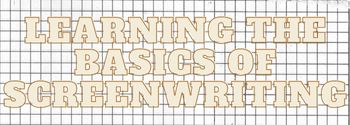The theme is the major concepts or meaning of a text that can be expressed directly or in an indirect manner. The major and the minor themes can be found in a literary work. Abuse of power occurs when somebody in authority abuses their position by oppressing someone else or manipulating them into committing wrongdoing. The Book Thief tells the tale of Liesel, who during World War II is forced to move in with her adopted parents Hans and Rosa Huberman. Her foster father teaches Liesel to read using books she has stolen, such as “The Gravediggers Handbook”. She becomes obsessed with reading once she has learned to read. The text is based in Germany at the time of World War II. Six millions Jews were killed by Nazis. Adolf Hitler, the Nazi party and their anti-Semitic policy and German aggression that led to World War II began in 1934. This text discusses how Zusak indirectly and directly writes about characters who abuse their powers and what the effects are.
Adolf Hitler’s abuse of power is an example of Zusak using it throughout his entire book. Zusak shows Hitler’s abuses of power in a historical context and through the plot. Liesel is reading Mein Kampf, and Rudy and Liesel are attending his Nazi Youth. Hitler became the dictator of Germany and began to enforce his discriminatory policy. He used the power he had to intimidate and act against anyone who was in opposition to his policies. Also, he exploited the nativity in German Youth children to teach them Nazism. Liesel Rudy, both of whom are not Nazis believers nor do their families, were forced to join Hitler Youth. Hitler and Nazis created such intense fear in their citizens, they could no longer disagree with Nazis’ political views. Liesel found this difficult as she was close friends with Max Vandenburg. Max is a Jewish refugee who lives in Liesel’s basement. As she became more aware of Hitler’s cruel actions and realised that he may have been involved in her parents’ disappearance, she began to lose her respect for him. After her epiphany her anger grows and she develops a hatred towards him. Hans Huberman hits her when she tells him “Don’t repeat that”. Hans does not intend to harm Liesel. However, he has to discipline Liesel for several reasons. Hans disapproves as well of Hitler’s policies, but he is too concerned about Liesel for him to see her suffer or lose her. Zusak’s portrayal of Hitler’s abuses of power as chancellor is based on his use of terror and fear to intimidate civilians into silence or submission when they dared criticize or question him.
Zusak makes use of intertextuality, having Max Vanderburg both read Mein Kampf and The Word Shaker from Olivia Jeffers. To avoid being murdered as a Jew in Germany during the 1930s, he became a Nazi. He then read and preached Nazi ideology to Liesel. Max is proud to talk about Hitler and Liesel loves him at first. However, once she questions him about everything she does, she starts feeling uneasy. As he reads her the words of Hitler, he describes them as “wordshakers”, people that “control words that grow into trees”. Author narrates: “Yes, Fuhrer decided to rule the World with Words. “I won’t ever fire a firearm,” he said. He devised a plan to spread the words as widely as possible in his homeland. He cultivated them and planted them all day long. Zusak uses his book directly to explain how Hitler spreads his political ideas. He also explains the power of his words and how they can affect and harm a nation. Zusak uses Max to demonstrate another way Hitler is controlling Germany. Hans Junior is walking into a chapter and Liesel has just finished reading. It is important that she read Mein Kampf to understand the importance of his words and their impact on people. Zusak uses intertextuality in order to emphasize the power of Hitler’s books and how they influence the nation.
Zusak uses the interaction between Liesel and her foster mother Rosa Huberman to show how she abuses her personal power. Liesel feels unwelcomed by her foster mother because of verbal abuses, mistreatments and her lack of acceptance. Rosa makes her even more upset by making her feel angry and sad. She takes advantage of her insecurities about her family, and kicks Liesel while she is down. Liesel’s treatment by the author at the beginning of this text is contrary to her description of her as “loving”. Rosa calls Liesel “pig girl” for refusing to obey her orders. Rosa threatens Liesel with a punch if she does not obey orders. She then makes her fearful of her and she follows every instruction. Zusak, on the other hand, depicts Hitler abusing his power to make people fear him so he could do whatever he wanted. Rosa, meanwhile, uses her abuse to protect Liesel from their harsh climate. Zusak shows the abuse and harassment that Rosa inflicts on Liesel while also showing her love for her.
Abuse is when someone in authority abuses his or her authority to harm a subordinate. Markus Zusak’s text The Book Thief highlights the theme, abuse of power, both directly as well as indirectly through the characters and the intertextuality. The abuse of powers is discussed in all its forms, whether it be political or even personal. The first is to create fear among a people to allow them to continue with a dangerous and discriminatory regime. The second is to teach discipline to protect the individual from this regime.

